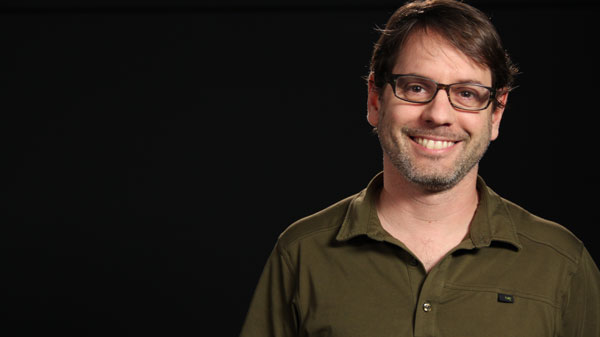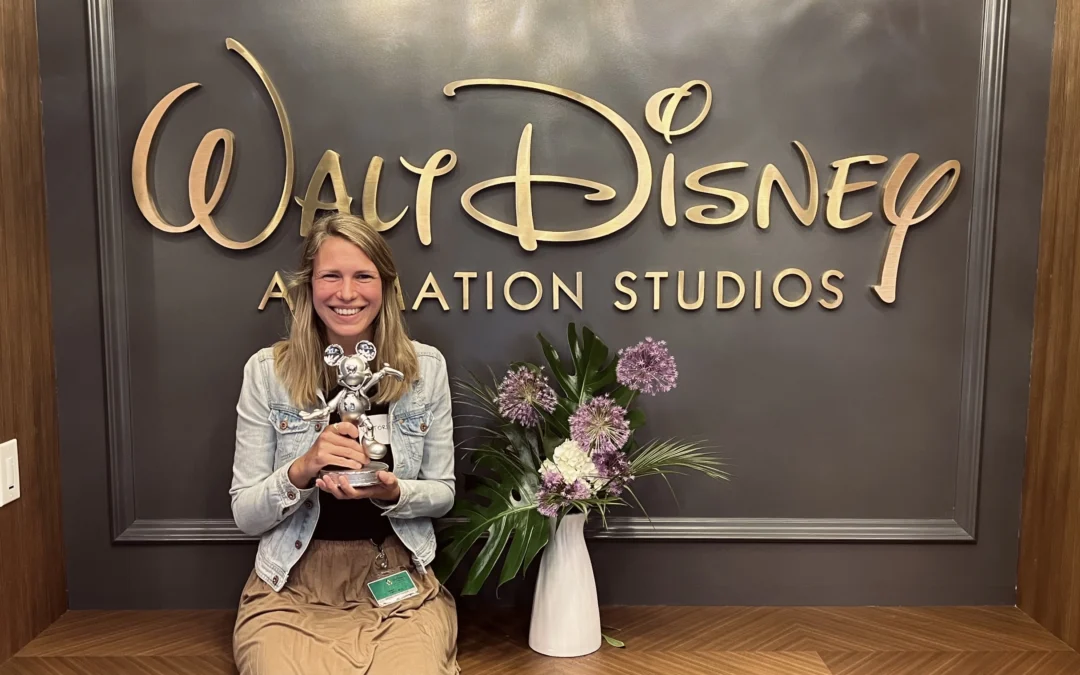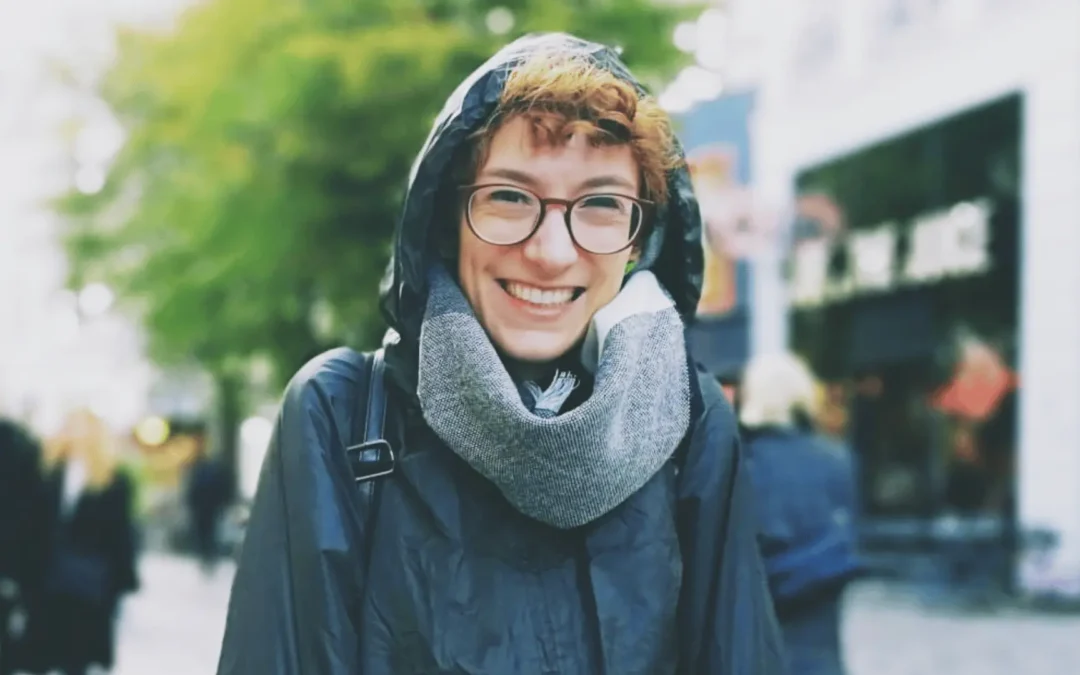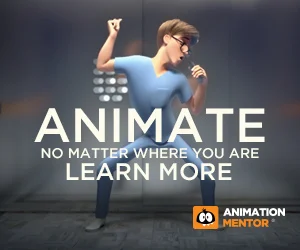
Animation Mentor’s Curriculum Director, Ben Fischler stops by the blog today to share his thoughts on the ever-changing visual effects industry. Ben brings with him over 15 years in the animation and visual effects field, most recently as Visual Effects Supervisor at LAIKA, and prior to that in Lighting and Compositing at DreamWorks Animation SKG. His partial list of film credits includes Madagascar, Madagascar: Escape 2 Africa, Over the Hedge, Shrek 2, and Shrek the Third.
We are aware that this is a sensitive topic and we are only one source of information, you can find more sources linked below. Please share your thoughts, voice, and ideas in the comments below this blog post.
————-
For today’s post I’m going to be discussing jobs and careers in Visual Effects, how to get a start in the industry, what the entry level positions are and what you can expect as an artist entering the field. The recent reality is that the VFX and Animation world has been undergoing a lot of change and upheaval. Many people have been adversely impacted by changes at studios in the USA and around the globe. For those of us who’ve been in the industry, we’ve seen big ups and big downs, but the bottom line is that VFX has grown and is now very much a global industry, with production happening around the world, at studios both large, small and in between.
Visual effects now spans a whole host of mediums and fields, including film, broadcast and online, commercials, games and everything in between. Some of these areas have seen monumental change and growth. Video games in particular represent an area that has seen rapid expansion, with the quality of the work in real time and pre-rendered cut scenes clawing it’s way toward the traditional apex of VFX work: Film.
When I started in Animation & VFX, film work was the top of the pile, where all the best work was done, on the marquee projects at the Name Brand studios in VFX and Animation (ILM, Pixar etc) These days film work still carries a lot of caché, but it’s no longer the only place where the real action is and where great work being done. Take a look at the recent work at top game studios like Blizzard, Ubisoft and others, and you’ll see that the same level of craft that’s going into film work can be found in games.
Broadcast work has also undergone a huge “Leveling Up” with amazing work being done at small to midsize studios on shows like Game of Thrones, Boardwalk Empire and Walking Dead. These are are shows that are utterly and completely dependent on VFX for their success, but the truth is that VFX are present in almost every major show on television and upcoming networks like Netflix. Commercials are also seeing amazing work being done, with the added factor that commercial work is often done under schedules that make film work seem leisurely.
What does all that mean to you as an artist looking to work in VFX?
Well, the truth is that while some things have changed over the years, some have not. First and foremost, you have to really, really WANT to work in visual effects. It is a demanding field that will test your ability to give your best. Few professions demand both technical and aesthetic acumen brought to work every day. If you’re thinking about working in visual effects or animation for the money or luxurious lifestyle, well… don’t. Sure, it is a field that may pay relatively well, but that’s far and away the worst reason to become a visual effects artist. You have to do it because you can’t imagine doing anything else. It’s too intense and too challenging a line of work to do it for any other reason then you love it. You have to do it because you’ve got the burning desire to tell stories on screen, create worlds, see your name in lights and amaze audiences.
Who should be a VFX artist? What are the backgrounds that will set you up for success?
My feeling is that there are some stereotypes out there that sometimes can scare off folks from our industry. You do NOT need to be a computer scientist! Does having a background in computer science help? Sure, but so does having a background in Fine Art. That’s the key, the truly great VFX artists tend to be both technical and artistic. Left brain + Right brain.
People with a background in fields that mix tech and art tend to be well suited to VFX; architects being a good example. Perhaps you have a more technical background, but have an artistic side as well? Or are have strong art skills, but not much technical skill yet. Often times it’s a matter of building on the areas you’re strong, and weaving in the skills in the areas that you’re less so. But in the end, you don’t have to be a master painter and a master coder, but having solid technical problem solving skills and a good eye are essential. Having a solid understanding of photography is definitely important, along with how light, color and shadow play together. These are concepts that we emphasize in our VFX Fundamentals program, and they really are key. We talk a lot about “Learning How To See”, which may sound a bit woo-woo, but it really means training your mind to observe the world around you, both in your day to day life, but also in art, film and the arts. Learn to watch films as a DP would, noting the choices around framing, composition and lighting. Above all though, learn to push yourself and your work. Be a mindful critic of your own work, and keep your standards high, because your VFX and CG supervisors will expect nothing less.
What are some of the typical entry level positions out there?
Well, it really varies but one thing that we’ve got to emphasize is that just as almost NO animator will get their first gig at Pixar or Weta, the same goes for technical artists. Most will learn some in a school environment, as well as on their own, build up their reel and eventually they’ll get their first break at a studio, typically somewhere smaller. The key of course is The Reel. Building a great reel takes time and a lot of effort, but in the end, that’s what will get you noticed and in the door. But even with a great reel you’re often going to start in a Junior position.
What are some typical Junior or entry level technical positions at a studio?
There are a few, but none that are as clearly defined as on the Animation side of production. While there are Junior Lighter and Junior Compositor positions at larger studios, even those positions will typically expect an artist to have a strong reel and
- Render Wrangler
Responsible for keeping the Render Farm happy & running. This is a very common way to get into a studio and then work your way up into the Look-Dev, Lighting, and Comp departments. For studios looking to promote from within, the Render Wrangler position is a natural draw because they will have become very familiar with the render farm processes as well as how to successfully utilize those resources. For people with some IT or Sys Admin experience, this can be a great entry position.
- Data Wrangler
Often similar to Render Wrangler, but this role will usually involve managing and checking that files are being moved from one part of a studio’s pipeline to another, either converting files into different formats, making sure automated scripts are running properly or getting old data off the main servers and onto either secondary file servers or a backup format for archiving. This is another great entry level position for those with technical training (IT, Systems mgmt, CS, coding) and one which can offer a path into the technical art areas within a studio.
- Roto Artist
Rotoscoping has traditionally been an entry level position for those who want to progress on to specializing in Compositing. Typically one might expect to work in Roto for some time, then progress on to Jr. Comp, working on smaller shots, then eventually after proving themselves, on to Senior Compositor. This is especially true at larger VFX studios, where the Senior Compositors are responsible for the big money shots that we all know and love.
- Paint Fix Artist
One of the dirty little secrets of CG VFX and Animation is that everything gets paint fixes. When a VFX or Lighting Supe calls “Final!” they don’t really mean it. What they really mean is that it’s ready to be sent along the pipeline to the Paint Fix or Cleanup dept. That’s where every finaled frame is lovingly painted and cleaned up before being send to the DI suite for final color work. The Paint Fix dept may have Jr. level positions open for artists experienced in Nuke, Photoshop and other 2D paint tools and this is a great position for someone looking to move up in the Comp department.
- Layout/Previs Artist
While often associated with animators and animation, layout and previs are highly technical processes, that are often closely tied to a particular studio’s pipeline and workflow. Typically Layout/Previs artists are what we consider “generalists”, a term that means different things to different people.
- Runner/PA
The Runner or Production Assistant position is possibly the oldest entry level position in film production (not just VFX!) and it’s still a potentially viable way to get your foot in the door and start making connections within a studio. A Runner may be asked to go get the coffee or wrangle artists for dailies, but the key is that you’re IN the studio and can start getting a sense of how production runs and how you might get in where you fit in. It’s a LOT easier to tell a Lighting Supe you’re interested in lighting and you’d love if they looked at your reel when you’re actually working at the studio with them!
- Matchmove Artist
Matchmoving in the past was very labor intensive, often requiring extensive hand work to animate and match camera moves to live action plates. While those days are almost entirely gone, matchmoving still requires a diligent hand at the controls of modern automated tracking tools like NukeX, Syntheyes and others. Larger studios will still employ a matchmove department and it’s a good entry level position for technical artists.
To close, remember that having a computer science and master of fine arts degree doesn’t mean a thing if you don’t know how to work as a TEAM. VFX is a stressful, intense line of work, and nobody wants to work with someone who doesn’t pull their weight. Develop those technical skills, hone your eye, learn the tools, but always remember that it’s a Team Sport, and everyone wants to work with Good People who work hard to make the whole process work as smoothly as possible.
———-
Get a free VFX eBook and learn more about the Animation Mentor VFX Fundamentals program. The courses are taught by industry professionals from major studios and include studio grade software like The Foundry’s Nuke and Mari and Solid Angle’s Renderer.
More Sources:
Scott Squires: Getting A VFX Job
Atomic Fiction: Breaking Into The Industry



